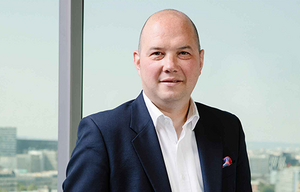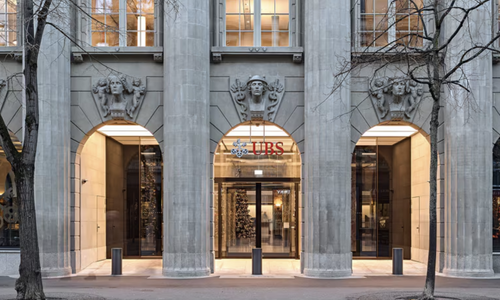The Saudis and Qataris are not the only ones injecting capital into Credit Suisse. It is rumored a Swiss group also wants in and in a big way. But the trail is murky.
On November 23 at the bank's extraordinary general meeting, shareholders of Credit Suisse will vote on a capital increase by issuing shares with a value of 1.76 billion Swiss francs.
A further 2.24 billion francs is to be raised through subscription rights, with the bank's management aiming for proceeds of 4 billion francs to finance the restructuring of the company and to increase its capital base. The bank's common equity tier 1 (CET1) ratio slumped from 13.5 to 12.6 percent in the past third quarter, hovering above the 10 percent that is the regulatory minimum.
The state-owned Saudi National Bank (SNB) intends to chip in 1.5 billion francs of this. According to a report in the «Financial Times» (paywall), Qatar's sovereign wealth fund QIA is also investing. Additional funding is coming from a «Swiss group,» although not from a competing bank, according to the report.
It is all quite mysterious, and Credit Suisse declined to comment when asked. In the banking world, however, there is a lively discussion about which major local investor could step into the limelight on November 23. finews.com tested four plausible scenarios.
1. On the trail of Bancassurance
Scenario: Swiss insurers have the money and the long-term horizon to wager a large investment in Credit Suisse. Operational considerations could also play a role since financial managers have come to see their business as an ecosystem. «Bancassurance» partnerships between banks and insurers are again respectable in Switzerland. Ironically, it was Credit Suisse that thoroughly trashed the bancassurance concept. To wit, the merger with Winterthur Versicherungen, now Axa, in 1997 ended in a nasty flop in the noughties.
Plausibility check: From the perspective of a long-term institutional investor, an entry into Credit Suisse could make sense both as a financial investment and because of possible operational efficiencies. However, most large insurers in Switzerland are publicly traded. Because of the size of the deal, they would therefore have had to inform investors of their intentions early in the process, arguing against this scenario.
2. In the Investor Crosshairs
Scenario: Private market firms invest on a much shorter time horizon than insurers, and could therefore be interested in a Credit Suisse «turnaround case» particularly with a current lack of big targets in the private equity market. They would almost certainly want to stock the board of directors with their nominees and accelerate the strategy of Credit Suisse CEO Ulrich Koerner. The return on equity target of 6 percent by 2025 is considered insufficient to recoup the bank's cost of capital.
The names of the Zug-based private market specialist Partners Group and the Swiss branch of the Swedish activist investor Cevian are being bandied about.
Plausibility check: Partners Group stated at the request of finews.ch that it was not involved. The asset manager very rarely invests in listed companies. Given that Credit Suisse is publicly traded, it doesn't sound very plausible that the bank's management would take on an activist financial investor in the face of enormous challenges.
3. Sentimental Patrons
Scenario: It is an open secret Credit Suisse relied on the commitment of wealthy private clients and family offices to inject capital after the Archegos debacle in April last year. However, those familiar with the situation believe those players are holding back this time because they don't expect Credit Suisse to recoup its cost of capital in the medium term.
Still, one or more wealthy patrons could be persuaded to donate several million given Credit Suisse's history as a pioneer of Swiss banking. Medtech billionaire Hansjoerg Wyss, who is known to have been or still is a client of the bank, has been brought into play here. Moreover, Wyss is not averse to financial firms, surprisingly joining Zurich-based Bellevue Group two years ago, for example.
Plausibility check: A commitment of several heavily wealthy individuals to Credit Suisse is conceivable. But only if they are interested in more than returns.
4. The Swiss Unit Gets it Act Together
Scenario: It is criminal that the federal government, the authorities, but also Swiss companies would only play a spectator role at Credit Suisse, and leave the rescue of the systemically important bank to regimes from the Middle East, finews.com recently commented on. Perhaps some entrepreneurs have secretly realized that Switzerland needs two major international banks.
Plausibility check: In corporate lending, Credit Suisse is the leading bank in Switzerland and cannot be replaced that quickly or easily. This speaks in favor of interest on the part of «Switzerland Inc.» In the future, a German bank with an international network could, for example, take over the role as an alternative to UBS for Swiss exporters. Another argument against the involvement of a group of companies is that such an action would be difficult to coordinate and even more difficult to keep secret.
So who is the mystery investor, and will that information come to light before November 23?










































